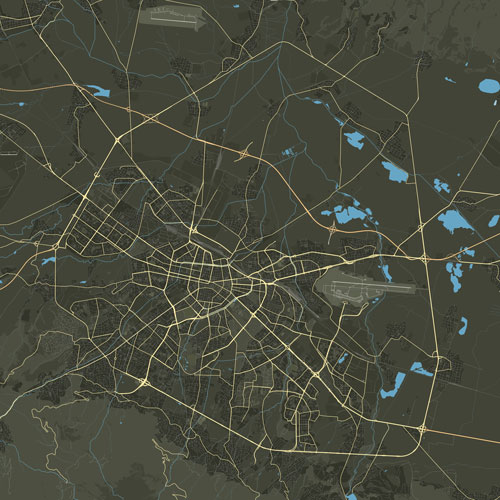According to the Treaty of Berlin, the Principality of Bulgaria was established as an independent tributary principality under the supreme authority of the Sultan, albeit with a Christian government and a national army (police). Eastern Rumelia, on the other hand, remained under the direct political and military authority of the Sultan, while enjoying full administrative autonomy. However, these decisions were met with dissatisfaction among the Bulgarian population in Mysia, Thrace, and Macedonia.
In response to these discontentments, the “Unity” committee was formed in both the Principality of Bulgaria and Eastern Rumelia. This committee spearheaded efforts to organize an armed struggle for national unification. Notably, the Kresna-Razlozh uprising erupted in Macedonia between 1878 and 1879, although it ultimately ended in failure.
The Constituent National Assembly, convened from February 10 to April 16, 1879, played a pivotal role in shaping the early governance of the Principality of Bulgaria. During this assembly, the Tarnovo Constitution was adopted, and Sofia was designated as the capital of the principality. Following this, on April 17, 1879, the First Great National Assembly convened in Tarnovo and elected German prince Alexander Battenberg as the ruler of Bulgaria, who assumed the title Alexander I.
On July 5 of the same year, the first Bulgarian government was formed under the leadership of Todor Burmov. This marked a significant milestone in the country’s political development, with the establishment of the Conservative Party and the Liberal Party, representing the first political parties in Bulgaria.
However, political dynamics soon shifted, leading to the overthrow of the liberal government of Petko Karavelov on April 27, 1881. In its place, a ministerial cabinet headed by General Kazimir Ernroth was appointed, serving from 1881 to 1883. This period witnessed a series of political transitions and tensions.
Subsequent parliamentary elections held in May 1884 saw the victory of the extreme liberals, resulting in the formation of a new government led by Petko Karavelov. These developments underscored the evolving nature of Bulgaria’s political landscape during its early years as a principality.
Following the establishment of the Principality of Bulgaria, the Sultan appointed Prince Alexander (Aleko) Bogoridi as the chief governor of Eastern Rumelia. In September 1879, the Regional Assembly elections saw the victory of the People’s Party, which advocated for the “Union of Eastern Rumelia and the Principality of Bulgaria.”
In response to growing aspirations for unification, the Bulgarian Secret Central Revolutionary Committee was founded in Plovdiv in 1885. This committee played a pivotal role in organizing and successfully realizing the Unification of Eastern Rumelia with the Principality of Bulgaria later that same year.
However, the Unification faced opposition from Serbia, encouraged by Austria-Hungary. This led to the outbreak of the Serbo-Bulgarian War, during which the Bulgarian army successfully halted the Serbian advance into Northwestern Bulgaria. The conflict concluded with the signing of the Bucharest Peace Treaty on February 19, 1886, between Serbia and Bulgaria.
Additionally, in 1886, a Bulgarian-Turkish agreement was reached, with Turkey officially recognizing the Union of Eastern Rumelia with the Principality of Bulgaria. These developments marked significant milestones in Bulgaria’s quest for territorial integrity and national unity.
Following the Unification, Bulgaria faced a political crisis that culminated in the dethronement of Prince Alexander I on August 26. In the aftermath, the III Great National Assembly convened on July 25, 1887, and elected German Prince Ferdinand Saxe-Coburg-Gotha as the new Prince of Bulgaria, who assumed the name Ferdinand I.
The period under Prince Ferdinand I saw efforts toward stabilization and modernization in political and economic spheres, particularly during the reign of Stefan Stambolov from August 20, 1887, to May 19, 1894. However, dissatisfaction with domestic politics led to the formation of the United legal opposition, comprising conservatives and liberals.
In response to the political turmoil, Prince Ferdinand prompted the resignation of the government. The subsequent administration, led by Konstantin Stoilov from May 19, 1894, to January 18, 1899, succeeded in stabilizing the internal political situation in Bulgaria. Under Stoilov’s leadership, efforts were made to address various challenges facing the country and to navigate through the complexities of Bulgarian politics.
From the late 19th to the early 20th century, the issue of national unification of the Bulgarian people held a central position in the foreign policy agenda of successive Bulgarian governments. In 1893, a revolutionary organization was established in Thessaloniki, initially known as the Internal Macedonian Revolutionary Organization (IMRO) and officially renamed in 1905. Concurrently, refugees from Macedonia and Thrace residing in the Principality of Bulgaria formed their own organization, the Supreme Macedonian-Edirne Committee.
Collaboration between these two organizations ensued, leading to the eruption of the Ilinden-Preobrazhensky uprising in the summer of 1903. Despite their efforts, the uprising ultimately met with failure and was ruthlessly quelled by the Ottoman authorities. This event underscored the ongoing struggle for national liberation and unity among Bulgarians living in various regions under Ottoman rule.
From 1903 to 1908, the People’s Liberal Party held power, a period often referred to as the Second Istanbul regime. Following this, the Democratic Party governed from 1908 to 1911. A significant turning point occurred on September 22/October 5, 1908, when, in Tarnovo, Prince Ferdinand I proclaimed Bulgaria’s independence through a special manifesto and assumed the title of Tsar of Bulgaria.
In 1910, Tsar Ferdinand I and Prime Minister Alexander Malinov engaged in unsuccessful negotiations aimed at forging a Bulgarian-Russian union. However, talks between the Bulgarian and Serbian, as well as Bulgarian and Greek governments, culminated in the signing of the Balkan Union in 1912.

